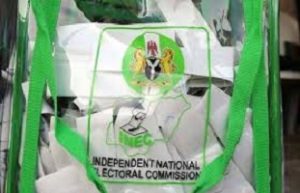
By Adediran Adelekana, Tade Daniel Omotoshob:
Introduction: In the event of 2018 gubernatorial election that took place in Anambra and Ekiti states, Nigeria, there were reports of vote- buying and open inducement of voters with money, ranging from N500 (1.7 USD) to N700 (1.9USD) by the two leading political parties in Nigeria. There was even video evidence by independent news outlets like Sahara Reporters and BBC news video that shows that political party agents were giving monetary bribes to individual voters in exchange for vote.
This obviously is the height of electoral bribery and an obvious factor contributing to the cycle of corruption and poverty. In our study, we examined the impact of bribery and corruption by Political parties as well as political party agents on voter’s turnout and electoral decision in Nigeria.
We also scientifically analysed voter’s thoughts or opinion on the issue of vote buying. We asked citizens whether offering bribes to Nigerian citizens will influence their decision to vote for or against a political party offering bribes.
DATA COLLECTION: A ten (10) question pilot online survey were first distributed using virtual snow ball sampling or chain referral (non-probability sampling) with 52 respondents, the result from this pilot study led to the initiation of a different ten (10) question online survey with 416 respondents which were retrieved through an Online Survey platform; www.surveymonkey.com
RESULTS: Out of the 416 people surveyed on the question of whether agents representing political party in Nigeria offer bribes to voters in exchange for votes, 373 people (90.53%) answered “yes”, 19 people (4.61%) answered” no”, Out of the 416 people surveyed about if they think that bribes offered to Nigerian citizens by political parties in exchange for political votes influences Nigerian citizens to vote in favour of such political parties, 354 people (86.13%) responded that the bribe offered make voters vote in favour of the parties offering the bribe, 42 (10.22%) responded that the bribe offered does not make people vote in favour of such political parties.
A heat map of correlations computed using Artificial Intelligence (AI) methods with Python software was generated, the heat map indicated that the study results generalise beyond socio demographic partitions as the responses from respondents had no significant correlation with gender, age group and educational level.
CONCLUSION: The phenomenon of bribing by political parties is observed in the Nigeria. Based on our research, majority of Nigerians think that bribing voters in Nigeria actually influences them to vote, especially in favour of the political parties offering bribes. This can imply that elections in Nigeria are not true and fair. It can also suggest that the party that is able to buy more vote is likely to win the election. Our research also suggests solutions as crowd sourced through our survey, emphasis was placed on education of voters, penalising culprits involved with bribery as well as overall improvement of standard of living in Nigeria by economic empowerment and industrialisation.
The law makers in Nigeria could therefore implement more specific laws to prohibit manipulation of voters as there is a clear correlation in the opinion of Nigerians between bribery of Nigerian citizens by political parties through their agents and their voting decision. Since the Nigerian constitution through the electoral act recognize vote buying as illegal, law enforcement institutions should be independent enough to uphold the rule of law by shunning corruption and upholding their political will to enforce the law irrespective of who violates the law.
This piece was written by:
Adediran Adelekana, Tade Daniel Omotoshob
Masters of Public Administration, Clark University, 950 Main Street Worcester, MA 01610, Faculty of Management, University of Vistula, Stoklosy 3. 02-787, Warsaw, Poland.